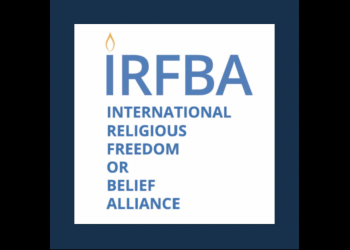International Alliance Notes “Increased Pattern of Persecution” Against Baha’is
The Baha’i International Community welcomes a statement from the International Religious Freedom or Belief Alliance which notes “with grave concern the increased pattern of repression and discrimination against members of the Baha’i community.”
The International Religious Freedom or Belief Alliance (IRFBA) is a network of like-minded countries that draw on Article 18 of the Universal Declaration for Human Rights, which states everyone has freedom to believe or not believe, to change faith, to meet alone for prayer or corporately for worship, to advance freedom of religion or belief around the world.
Statements issued by IRFBA do not mention specific countries. But it is clear from the examples cited that the statement relates to the persecution of the Baha’is in Iran and Yemen and the discrimination of Baha’is in Qatar. The source of the orchestration of the persecution or discrimination in all these cases is the government of the Islamic Republic of Iran.
The statement, issued ahead of the festival of Ridvan, the holiest period in the Baha’i calendar, is the first time IRFBA has made a direct intervention on challenges facing Baha’i communities in a small number of countries as a result of religious prejudice.
“We uphold the right of all Baha’is to freedom of religion or belief—to practice their religion and associate as members of that community without harassment, discrimination, fear, or persecution,” the statement added.
Australia, Brazil, Denmark, Estonia, Israel, Kosovo, Lithuania, The Netherlands, Norway, Slovakia, Sweden, the United Kingdom and the United States have signed the statement.
Thirty-five countries are members of IRFBA with four others also attached as friends. One further country is present as an observer – as is the United Nations Special Rapporteur on freedom of religion or belief.
There is a “pattern of repression and discrimination against Baha’is [which] includes measures to restrict the educational, economic, and cultural lives of Baha’is; prevent Baha’is from engaging in certain occupations and ‘high-earning businesses;’ confiscate their properties, and expel students from universities who are found to be Baha’is,” IRFBA said in its statement. “Authorities routinely arrest Baha’is, raid their homes, and confiscate their personal belongings without cause. Authorities also arbitrarily detain Baha’is on spurious charges where they are denied legal protections, including access to legal representation. Baha’is have faced lengthy delays before facing trial or summary judgements where they are imprisoned for their beliefs and face ongoing abuse, including allegations of torture.”
In those few countries where family law is based on religion, IRFBA added, and where the Baha’i Faith is not recognized by national authorities, Baha’is are left with “no legal recourse” in matters of marriage, divorce, and inheritance rights. “This exclusion can also deprive them of the possibility to bury their dead with dignity in accordance with Baha’i practices,” the statement said.
Senior government representatives gather through the IRFBA network to discuss actions their nations can take together to do more to defend the freedom of religion or belief for all and also to protect members of religious minority groups.
The statement also listed 10 actions, for those countries where the Baha’i Faith is not recognized, to “enable the equal enjoyment of human rights by Baha’is.” The actions covered livelihoods and property rights, burial practices, university education, due process rights and personal status laws, deportations, and blacklisting. These same states were also urged to not criminalize Baha’i belief and practice nor to single Baha’is out for discriminatory policies and persecution.
